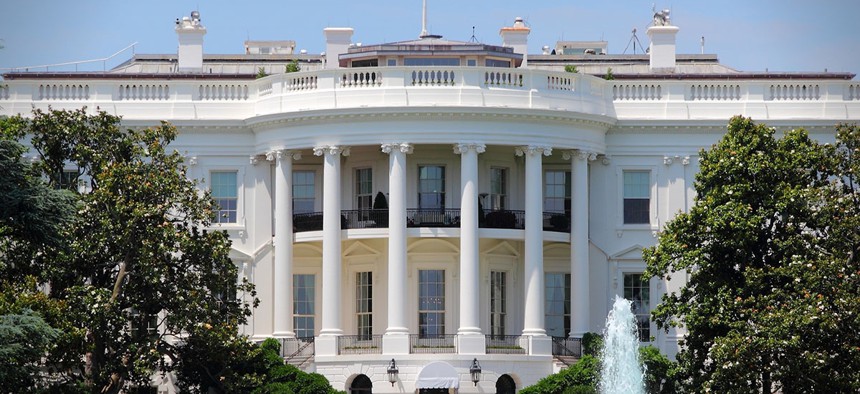White House Office of American Innovation Lays Out Priorities

Tupungato/Shutterstock.com
Led by Jared Kushner, the collection of White House talent has been described as a “SWAT team of internal consultants” and a liaison between federal bureaucracies and Silicon Valley innovation.
The White House Office of American Innovation announced in March has been an object of fascination among the government community.
Led by President Donald Trump’s son-in-law Jared Kushner, the collection of White House talent has been described as a “SWAT team of internal consultants” and a liaison between federal bureaucracies and Silicon Valley innovation. Save for a few public appearances by its chief officials and praise from those who’ve worked behind the scenes with the office, including Rep. Will Hurd, R-Texas, and Veterans Affairs Secretary David Shulkin, not much about its policy priorities has been revealed.
On Tuesday, Matt Lira, special assistant to the president for innovation policy and initiatives, provided a blueprint of the Office of American Innovation’s efforts. First up: government modernization.
» Get the best federal technology news and ideas delivered right to your inbox. Sign up here.
“When we look at the operational side of government, it doesn’t often grab headlines and it will unlikely be a big political football, but I think that is actually one of its greatest advantages,” said Lira, speaking at an event hosted by Nextgov.
Lira is no stranger to politics. He served in senior positions on Capitol Hill and national campaigns before returning to government in his current role. Improving IT across the government is politically neutral, and members from both parties are on board, he said. In other words, unlike issues such as health care and tax reform that tend to dominate the news cycle, improving tech across the government isn’t politically charged.
To Lira, it’s just as important.
He cited VA’s well-publicized record of providing poor or inadequate services to veterans while spending countless billions as one such example. One of the Office of American Innovation’s early wins has been advising Shulkin to consider a sole-source contract for an electronic health records system already being built for the Pentagon. The move could save the government billions and improve service delivery and patient care for vets.
Lira’s peers at the Office of American Innovation, Chris Liddell and Reed Cordish, provided “invaluable” insight on the Modernizing Government Technology Act, according to Hurd. The legislation aimed at updating old IT systems unanimously passed the House and currently awaits a hearing in the Senate.
“We have widespread bipartisan consensus on Capitol Hill, we have a real need when it comes to the public’s desire to improve the quality of citizen services they receive,” Lira said. “We can make that experience as good as something they would experience as though they were using the latest online app or latest shopping experience. The customer service can be that good.”
Since March, the Office of American Innovation has met with chief information officers at each CFO Act agency to compile feedback, Lira said. Office of American Innovation representatives tapped the White House’s “power of convening” to elicit advice from leading tech executives, procurement experts, hiring gurus and other stakeholders. Lira pointed to the American Technology Council’s inaugural meeting last week as evidence the private sector is ready and willing to share ideas.
The small White House team, he added, is equally willing to listen.
Improved hiring, procurement, contracting, service delivery and cybersecurity were all key topics discussed by private-sector technology executives and White House officials.
Such meetings will be the norm during this business-focused administration, Lira said. So, too, will meetings among federal officials who aim to do more with less. One key goal, he said, will be aligning civil servants, federal agencies and the vendor community around “continuous technological improvement.”
“If I had the ability to wave a magic wand and instantly deliver a modernized government, within six months, we’d still have to modernize it again,” Lira said. “The challenge is not to deliver a shiny object but to build an organizational structure, continuously updating. We realize we’re not the first to tackle this problem. If we’re able to achieve as policy [a] consensus, that’ll be a far more powerful thing than anyone achievement we can do alone.”
In addition to modernized government, Lira said the Office of American Innovation will focus on a handful of other issues, including workforce, apprenticeship programs and infrastructure-related issues. A press statement from the president also noted creating manufacturing jobs and addressing the drug and opioid epidemic may be other priorities for the office.
NEXT STORY: Can tech geeks crack the codes of Congress?






